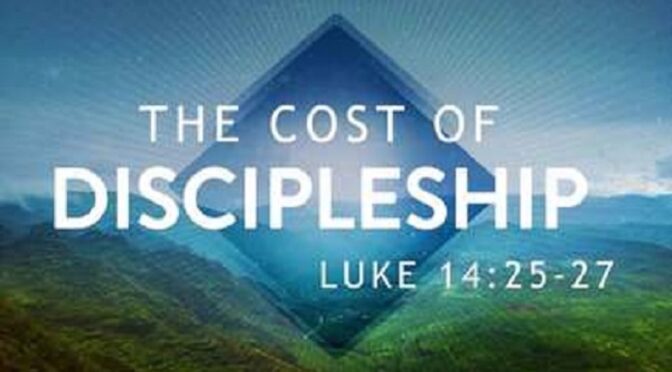Contents
Prologue
After listening to Jesus’ words to the invitees and their host (cf. Luke 14:1.7–14), one of the invitees sitting at the table with Jesus exclaimed “Blessed is the one who will dine in the kingdom of God” (Luke 14:15). Was this a eulogy, a mockery or a fanciful distraction from the uncomfortable theme of caring for the poor and the infirm? Probably, it was both. However, such intervention offered Jesus the chance for further clarification. ‘In the kingdom of God’ is a reference to the eschatological messianic banquet. In Jesus’ time, this was understood as a banquet in which only the pious Jews were qualified to partake. Jesus used the story in Luke 14:15–24 to demonstrate that those who think such a banquet was meant for them will never be part of it (cf. v.24). Instead, they will be replaced with the poor, the crippled, the blind, the lame and the Gentiles (cf. vv.21 and 23). While the godly Jews represent the rich, the ungodly Jews refer to the poor, the crippled, the blind, the lame, and the Gentiles. Luke 14:15–24 is a further elaboration and application of 14:1.7–14. It is on this foundation and with this orientation that we should approach this Sunday Gospel message.
The meaning of discipleship
Generally, Dictionaries have difficulty defining discipleship. While some attempt to resolve this difficulty by providing the meanings of disciple, others present it as the state of being a disciple or follower in doctrines and precepts. Personally, this definition does not portray the Scriptural notion of discipleship. Discipleship does not consist in following doctrines and/or precepts. It is not the capacity to formulate philosophical and theological treatises on faith and on following Jesus. Discipleship is not the test of oratorical ability.
The cost of discipleship
If for the crowd discipleship is an ordinary accompanying, a convoy, for Jesus, it is something extraordinary. It is a total commitment. It is a theological assignment and responsibility. To the crowd that entertained itself accompanying Jesus, he turned and gave the vademecum for being a disciple.
If anyone comes to me without hating…, he cannot be my disciple.
“If anyone comes to me and does not hate his father and mother, wife and children, brothers and sisters, and even his own life, he cannot be my disciple” (Luke 14:26; cf. also Matt 10:37). This is the first condition for
Epilogue
Discipleship is a commitment and responsibility. He or she who accepts to become a disciple should never think of going back, no matter the difficulties. This is what Jesus means when he says a disciple must be willing and ready to bear the cross and renounce everything. It is not the cross of self-inflicted pains. It is not the search for suffering. It is the cross of discipleship. It is the cross of salvation. This forward-ever-backward-never nature of discipleship is summarised in Jesus’ prayer at Gethsemane: “My Father, if it is possible, let this cup pass from me, nevertheless, not as I will, but as you will” (Matt 26:39).
FOR DETAILS, GET YOUR OWN COPIES OF THE BOOK “THE WORD OF LIFE:
SUNDAY REFLECTIONS” (vols. I‑II-III)!! The reflection for the 23rd Sunday is found in The Word of Life, vol. III, pages 496–509. Happy reading!
For details on how to get it, contact the author on this link: https://m.me/uchennabiblia?fbclid=IwAR2yeg4a6sDGBp9QGkIvKj6FSADumMokN6lshdE0zuo-JHs6qOmlhA7jyHo
or email me at: postmaster@uchennabiblia.com
or simply send an SMS on 08116100926, and I will get back to you.

